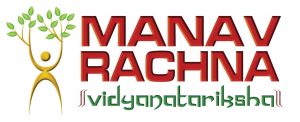Interest in the human being is central to holistic pedagogy. Every individual as a person has inalienable dignity. MRIS-51 Gurugram is a nurturing ground for little children where they develop into holistic individuals – intellectually, emotionally, socially, physically and mentally. We have a progressive & comprehensive curriculum which gives every child the best possible start in life and enables them to fulfil their potential. Children develop quickly in the Early Years and a child’s experiences between birth and age five have a major impact on his/her future life chances. We seek to provide quality and consistency in all early years settings, so that every child makes good progress and no child gets left behind.
The common project of upbringing thus includes parents, teachers, and children/students themselves. Good parenting and high-quality early learning together provide the foundation children need to make the most of their abilities and talents as they grow up.
Our curriculum is based on the National Curriculum Framework 2005, Early Childhood Care and Education Framework and Early Years Foundation Stages Framework, U.K.
Student Centric Approach - Every child responds better to a different learning style
All of our programs are based on the belief that children are active participants in their learning. We encourage student-centric learning by allowing them to share in decisions, believing in their capacity to lead, and remembering how it feels to learn. A student-centric approach encourages students to take learning into their own hands, as opposed to being directed or prompted by a teacher. Children take responsibility for making choices about what they will learn and explore. The teacher acts more as a partner to guide the child in their individual journey. The teachers listen for cues and watch interests develop to create an appropriate curriculum for each individual. Through collaboration, shared experiences, and in-depth exploration of unique topics, children develop a rich understanding of the projects which they undertake. Child-centred education inspires students to explore what they are most curious about.
Play is our brain’s favourite way of learning
You can discover more about a person in an hour of play than in a year of conversation. We have a strong belief in practicing play-based learning which is genuinely and positively impactful on student learning and development. We provide the environment where children learn well when they are mentally active, engaged, social, and can make meaningful connections to their lives, which are all characteristics of play. Their intellectual, physical, and social-emotional abilities emerge.
Learning Centre Approach – To engage the students and develop their abilities
We have adopted the Learning Centre Approach in the Early Years Programme based on the belief that children are explorers and learn through play. Young children learn so much during centre time- social interaction with both peers and adults, self-regulation of behaviour, language development, time management, tons of age-appropriate academics, trying new things in a safe environment, etc. Educators value and plan for the physical, mental, personal, social, emotional, cognitive and linguistic development of the child. Children can freely and actively engage in purposeful learning activity of their choice and interest where they learn, practice and master skills gaining deep satisfaction and knowledge. It contributes to the holistic development of the child.
Seven Areas of Learning
There are seven learning areas that shape our educational programme in Early Years. All areas of learning and development are important and inter-connected. First three areas are particularly crucial for igniting children’s curiosity and enthusiasm for learning, and for building their capacity to learn, form relationships and thrive. The last four areas include essential skills and knowledge. They grow out of the first three areas and provide important contexts for learning.
These seven areas are:
- Language and Literacy
- Sports and Wellbeing
- Life Skills
- Numeracy
- Performing Arts
- Visual Arts CREST (understanding the world through opportunities to explore, observe and find out about people, places, technology and the environment.)
Concept Driven Curriculum- To drive the learning, thinking and process of co-constructing knowledge
A concept-driven approach personalises the learning making it more meaningful and relevant to the demands and needs of the students. Our inquiry-based approach empowers students to take ownership of their learning so that it becomes a lifelong pursuit. We prepare them to become adaptable so they can successfully navigate the challenges of changing worldviews and emerging technologies. Our curriculum differ markedly from the more rigid, or knowledge-based, approach to learning. We encourage children to delve more deeply in to a particular topic by asking all type of questions and collaborating with their peers and develop a sense of responsibility. Knowing the facts is not enough. We teach them to understand rather than rote memorising and proof learning than present application. We want students to develop intellectually, creatively problem-solve, and grapple with complexity. It aligns with our endeavour to prepare students to become compassionate, innovative global citizens and leaders
Play-based Learning In Early Years
To motivate, stimulate and support children in their development of skills, concepts, language acquisitions/communication skills and concentration.
The young mind is flexible, sensitive and is influenced and shaped by the events in the outside world. Most of what children learn is acquired by exploring, playing with and observing the relation between objects.
